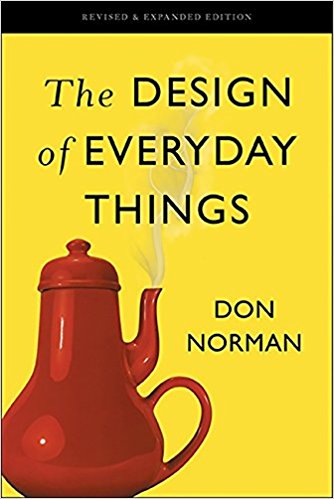We hope you love the books people recommend! Just so you know, The CEO Library may collect a share of sales or other compensation from the links on this page.
This book has 4 recommendations
Julia Enthoven (Co-Founder/Kapwing)
For people interested in designing or building software products: The Design of Everyday Things by Don Norman and The Lean Product Playbook by Dan Olsen. Both books have informed my product sense and helped me make decisions about great UX.Kaci Lambe (Writer, Photographer, Designer)
These three books are about how people actually use design in their lives. They helped me understand this very basic idea: There are no dumb users, only bad designers. Take the time to create based on how your design will be interacted with. Test it. Iterate. That's how you become a good designer.Grey Baker (Co-Founder/Dependabot)
I mainly read to decompress and change my state of mind, so it’s hard to point to an insight I read that helped me. Reading fiction has pulled me out of a bad mood more times than I can count, though, and always reenergises me to attack problems that had stumped me again.
That said, I read and loved Norman Norman’s “The Design of Everyday Things”, and it’s helped me think through design problems ever since.
Marius Ciuchete Paun (Web designer)
Question: Was there a moment, specifically, when something you read in a book helped you?
Answer: Yes there was. In fact, I can remember two separate sentences from two different books:
The first one comes from “The Design of Everyday Things” by Don Norman. It says: “great design will help people figure out what actions are possible without the need for labels or instructions”
The second one comes from “Don't Make Me Think” by Steve Krug. It gives the following advice: "Get rid of half the words on each page, then get rid of half of what’s left."
Amazon description
Even the smartest among us can feel inept as we fail to figure out which light switch or oven burner to turn on, or whether to push, pull, or slide a door. The fault, argues this ingenious—even liberating—book, lies not in ourselves, but in product design that ignores the needs of users and the principles of cognitive psychology.
The problems range from ambiguous and hidden controls to arbitrary relationships between controls and functions, coupled with a lack of feedback or other assistance and unreasonable demands on memorization. The Design of Everyday Things shows that good, usable design is possible.
The rules are simple: make things visible, exploit natural relationships that couple function and control, and make intelligent use of constraints. The goal: guide the user effortlessly to the right action on the right control at the right time. In this entertaining and insightful analysis, cognitive scientist Don Norman hails excellence of design as the most important key to regaining the competitive edge in influencing consumer behavior. Now fully expanded and updated, with a new introduction by the author, The Design of Everyday Things is a powerful primer on how—and why—some products satisfy customers while others only frustrate them.
Get this book on Amazon | Barnes & Noble | Book Depository | iBooks
See more books recommended by
Julia Enthoven, Kaci Lambe, Grey Baker, Marius Ciuchete Paun
See more books written by
Sources
- Julia Enthoven, Co-Founder of Kapwing, Sets Up Her Reading List at the Beginning of Each Year
- Kaci (Hampton) Lambe and the Books That Inspired Her to Become an Author
- Grey Baker, Co-Founder of Dependabot, Turns to Reading to Change His State of Mind
- How Web Designer Marius Ciuchete Paun Turned from Struggling-Reader to Audible-Devourer




